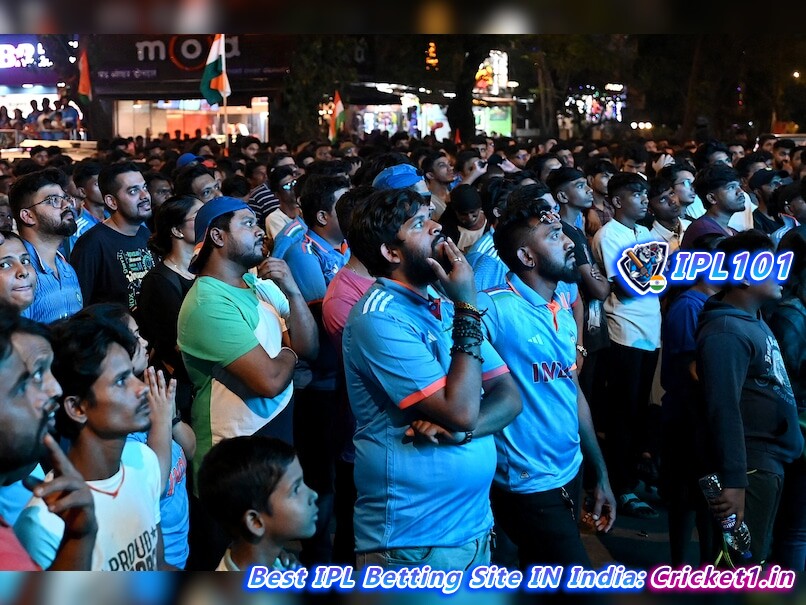
The electrifying spirit of cricket fans in Ahmedabad was abruptly dimmed on Sunday, following India’s six-wicket defeat to Australia in the final match of the Cricket World Cup. What began as a day filled with vibrant enthusiasm and high hopes for India’s claim to a third title, ended in heartbreak for tens of thousands who had eagerly lined up early in the day, anticipating a night of jubilation.
The Narendra Modi Stadium, boasting a capacity of 132,000 and acclaim as the world’s largest cricket ground, saw swathes of Indian supporters begin their premature exit by the 35th over of Australia’s innings. The unwind was precipitated by the unavoidable reality settling in—the trophy was slipping from the home team’s grasp. India, having impressed throughout the tournament with an undefeated run, ultimately set a target that fell short of expectations, leaving Australia a 241-run chase to their sixth World Cup title.
Disappointment was palpable among the fans. Jine Shah, aged 40, made his way out of the stadium when Australia was inching closer to victory, still needing 49 runs. “I am returning to my home in Mumbai now,” he shared with a sense of resignation, symbolizing the deflated spirits of many: “I’d have stayed here and in the city if we were winning, but what’s the reason now?”
Rajiv Kumar, a 25-year-old fan who had planned an all-night celebration, was at a loss, unable to identify the turning point that led to the team’s downfall. “They have been so good throughout this tournament, the best, and I don’t know what happened today,” he said, overcome with a desire to escape the sting of the loss by retreating to his hotel room for sleep.
Amidst the exodus of local fans, foreign enthusiasts like Roelof Hugo, a 51-year-old from Paarl, South Africa, remained to witness the final overs. Hugo confessed his surprise at the outcome, having earlier believed that no team could topple India given their impressive form.
The international crowd, such as Jacob Diaz from Arizona, USA, alongside his friend Parvathi Subramanian, found the match to be a compelling but ultimately disappointing introduction to the game. Their plan to savor the event’s conclusion was thwarted by the unequivocal direction the match had taken.
As the last run was scored, the throngs of fans on the streets mirrored the gloom that had beset the stadium. The high expenditures for travel, accommodation, and match tickets only amplified the sense of loss. Reflective conversations cropped up among groups, torn between seeking solace in Ahmedabad’s famed food culture or retreating into the solitude of their rooms.
The ramifications of the defeat echoed beyond the immediate shock, bringing to the fore concerns about the future of India’s cricket stalwarts. “This is a big loss after the way we played over the last few weeks,” lamented Surinder Singh from Mumbai, expressing doubts over whether seasoned players like Virat Kohli and Rohit Sharma would grace another World Cup in their careers.
Indian cricket, a formidable force powered by a robust economy and passionate followers, found itself grappling with a familiar void—having last savored World Cup glory back in 2011. The tournament’s conclusion left fans like Rajinder Singh from Delhi searching for closure: “I don’t know what to do now. It feels so sad and empty as the World Cup has come to an end and we didn’t win it.”
The story of India’s World Cup journey and its poignant finale has captured the attention of the cricketing world, evoking a collective empathy for the fans and the nation that lives and breathes the sport. As the World Cup chapter closes, Indian fans and players alike will look forward to the next opportunity to reclaim their place at the pinnacle of international cricket.

